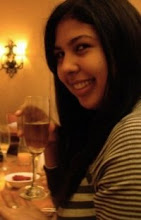When I first got accepted to Suffolk University in Boston. They offered me a full ride, and so I decided to accept. During the orientation process we got taken to a series of lectures given by different departments. The department of advisory spoke about individual careers and what courses, in general, would benefit students going into that field. They spoke about one in particular which was intriguing to me. They informed us that the best language to take at the time, if one wanted to join the business world, was Arabic. Due to the current conditions a lot of companies were looking for people who spoke Arabic to act as liaisons between the US and the Middle East. But that is now. What about further into the future.
I always thought, and I still do, that in the end there would only be two superpowers in the world, the US and China. So I would have ventured to learn Chinese; but, it's not my forte. Maybe later in life. Anyway the whole point is about evolution of human beings. All the languages we have now derived from another, mostly Latin. But what will happen to all the languages we have in the future.
An article on Pantopicon is just about that. How does one map the future of a language? Throughout history language changes because of varies factors. The most common is immigration of a civilization. Where two languages meet to form another. Also the difference in social class can dictate the way a person speaks. Different groups of people have different slangs that are common to them. So as the world progresses the languages we use keep changing.
A Dutch poet Ramsey Nasr has written a poem translated "I Have a Dream" which takes place in 2059. He writes as what he believes the language of the future will be. Can't really understand it but there are words that are in english. And just the way he speaks, you will notice that it's very different from how people speak now.
I just thought that his rendition of what language will be like almost fifty years from now was quite interesting.

No comments:
Post a Comment